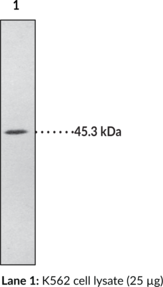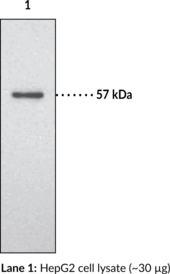Description
Protein phosphorylation is an important post-translational modification that serves many key functions to regulate a protein’s activity, localization, and protein-protein interactions. Phosphorylation is catalyzed by various specific protein kinases, which involves removing a phosphate group from ATP and covalently attaching it to a recipient protein that acts as a substrate. Most kinases act on both serine and threonine; others act on tyrosine, and a number (dual specificity kinases) act on all three. Because phosphorylation can occur at multiple sites on any given protein, it can therefore change the function or localization of that protein at any time.{17293} Changing the function of these proteins has been linked to a number of diseases, including cancer, diabetes, heart disease, inflammation, and neurological disorders.{17295,17296,17297}In particular, the phosphorylation of tyrosine is considered one of the key steps in signal transduction and regulation of enzymatic activity.{17301} Specific antibodies can detect phosphotyrosine and are therefore helpful for facilitating the identification of tyrosine kinase substrates in vivo.{17302}
Synonyms:
Immunogen:
Formulation: Antibody from clarified ascites containing 0.02% sodium azide
Isotype: IgG1κ
Applications: ELISA and WB
Origin: Animal/Mouse
Stability: 365 days
Application|Flow Cytometry||Application|Immunohistochemistry||Application|Western Blot||Product Type|Antibodies|Monoclonal Antibodies||Research Area|Cancer|Cell Signaling||Research Area|Cardiovascular System|Heart||Research Area|Immunology & Inflammation


